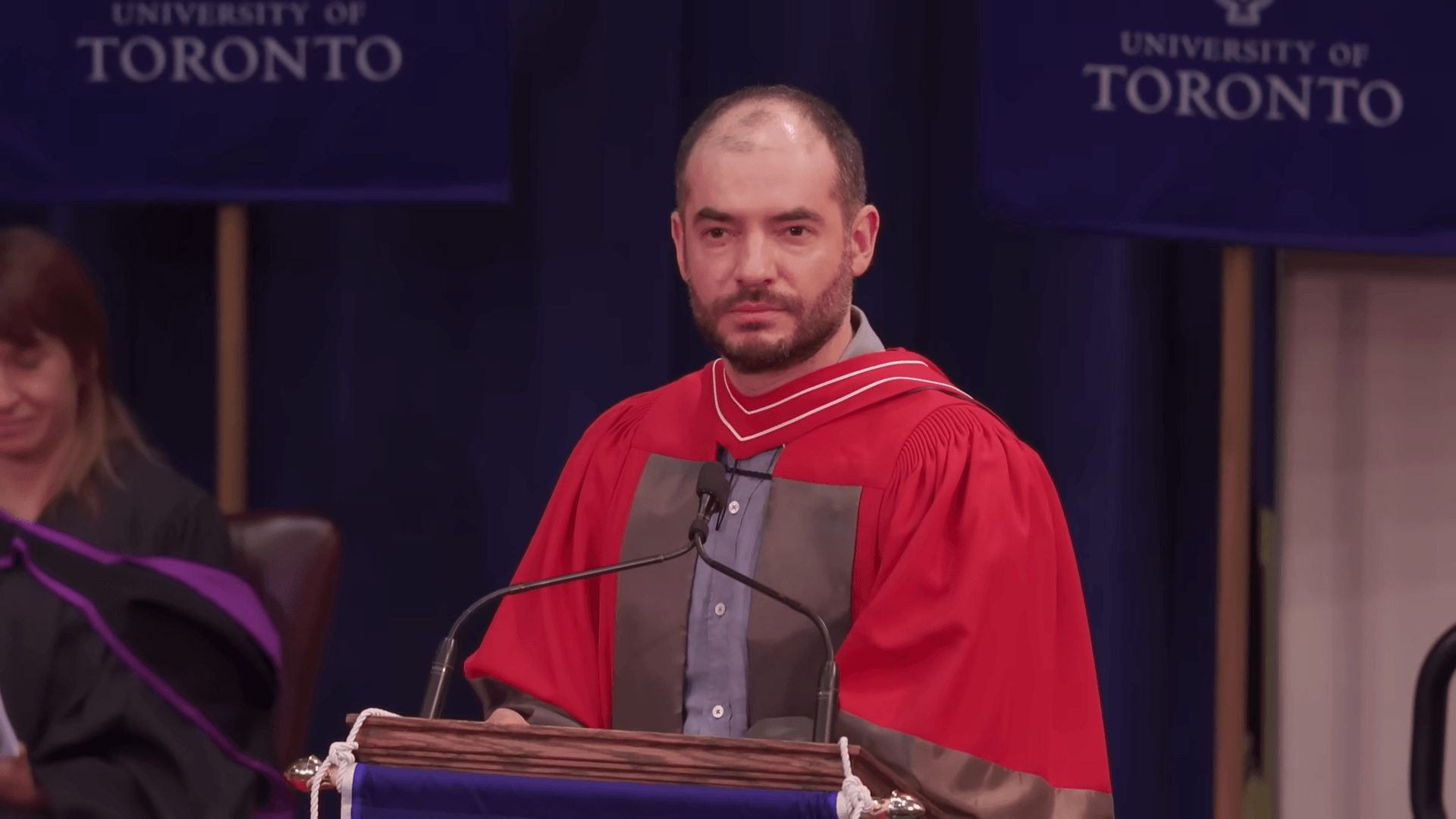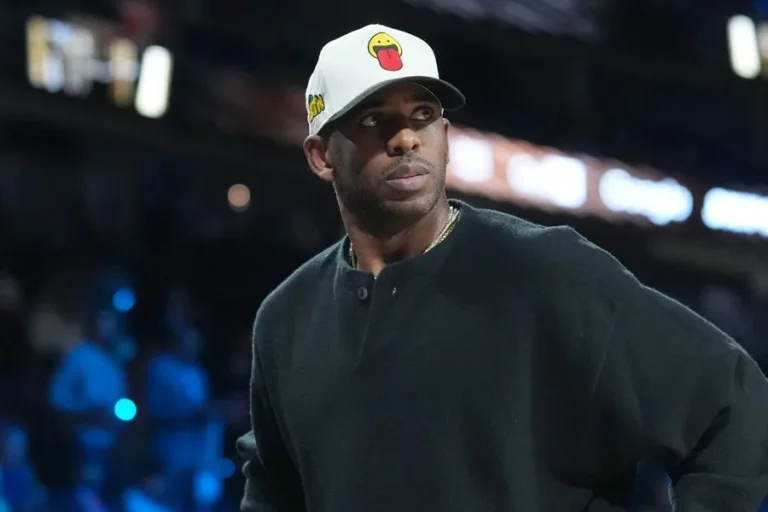
You don’t need to follow all the blowhard, clickbait madness now being splattered all over the world about generative artificial intelligence (AI).
You only need to listen to a few of the key experts who created the technology. No one was more integral to pulling off this wondrous and potentially wicked miracle than a 38-year-old named Ilya Sutskever.
When you listen to the top people who shoved this technology into our lives – none of whom can explain why it works so well – they consistently name him as the guy who brought forth and made happen the key breakthroughs.
We would be wise, therefore, to listen to what he says. He doesn’t speak publicly much but did on June 6th during his convocation address at the University of Toronto where decades earlier he earned his PhD after completing his thesis on “Training Recurrent Neural Networks,” which is, in part, what generative AI is about.
In his talk he didn’t say some things I was hoping he would say, meaning I wished he had said I don’t need to be overly concerned about my skills needing to change, that I don’t need to prepare for what’s coming that may not be comfortable, that all the current AI hype is overblown.
No, he said this:
“The challenge AI poses is in some sense the greatest challenge of humanity. In some sense your life will be altered to a great extent. The day will come when AI will do all things we can. Not just some of them – all of them. How can I be sure? Because all of us have a brain, a biological computer. So why can’t a digital computer do the same things? These are such extreme things. These are unimaginable things.”
So concerned he is about the safety of generative AI that he left the company where he helped invent ChatGPT, Open AI, and formed a new company, Safe Superintelligence. The goal of this new enterprise is as straightforward as it is grandiose: make sure superintelligence is safe.
“A superintelligence will be very profound,” he said.
There are all kinds of people throwing around definitions of what superintelligence is or means. Ignore all the noise and confusion and blurriness. The key idea is when AI achieves superintelligence levels it will be able to do everything a human can do – and better in many or all cases.
What does that mean? What employees will be needed? And to do what?
No one knows. Read that again.
This is where we are.
The one sliver of good news here, possibly, is that if there’s anyone who can figure out how to make generative AI and superintelligence safe, in the sense that it does not want to harm people, in the sense that it can be controlled and prevented from wanting to do this, it’s this seriously mysterious guy named Ilya. A movie on this entire situation would have a guy who looks like him playing him.
There’s something eerie about this entire situation. This guy invented the technology. Then realized how dangerous it could be. Now he claims he wants to prevent that danger. It makes me wonder who he is, where he came from, what his true motivations are. His bio says he’s an Israeli-Canadian. People who know him well say he’s genuinely concerned about keeping the technology from wanting to harm people. Sincerity comes across.
But why the change in mission, from inventor of a spellbinding technology to the guy who knows, apparently, more than anyone about how precarious the technology is? He knows something the rest of us don’t. A brain that stands apart.
Is this all a master plot with him at the center to upend the world geopolitically, economically, and socially? Who is he? A pawn? Did a country hire him to do all this? Is he really as smart as everybody says he is or is that, too, propaganda. If it is the latter, who is wanting that lie to be spread and why?
Conspiracy theorizing is not my go-to instinct usually but is warranted now. Our situation could be dire. Maybe not, probably not, but the chance is more than zero.
It’s worth considering something’s askew given how gigantically crazy all this AI apocalyptic rhetoric is we’re hearing every day. I don’t remember the fears being spread when the Internet hit, nor the search engine, nor the smartphone, nor any other technology. Nothing like this. Those were good things; this one may not be.
What do people in the know know that we don’t know?
What we do know is this is a blatant and insidious hot mess all about power, money, influence, and greed. Sutskever doesn’t come across like the testosterone hoarder like Elon Musk does. But maybe Ilya is playing his role in a grand plot none of us have picked up on yet.
I hope this guy is sincere and figures out how to create safe superintelligence, but don’t feel this is realistic.. The more I hear these experts talk the more trepidation I feel that none of them really knows what they created nor how to stop it.
I think this is exactly what the situation is.
Feels like genuine truths about where we’re really headed are not being shared with us about this imminently cataclysmic at worst, and massive workforce upheaval, at best. Progress this tech will bring in healthcare and education and other ways don’t resonate much considering potential downsides.
Joining Sutskever, telling all of us something really gigantic is probably coming, is 77-year-old Geoffrey Hinton, who is out there sounding the alarms constantly about the dangers of AI. It’s no coincidence. He was Sutskever’s professor at University of Toronto and boss of his student prodigy when they worked together at Google creating generative AI.
Blowing the loudest whistle he can on all the biggest podcasts clearly with no intention of slowing down — the matter being so urgent — the so-called “Godfather of AI” says he’s not sure how the technology works. He is not sure it can be made safe. Companies need to spend a lot more money on ensuring it’s safe, he says, but points out they’re more interested in profits than ensuring safety. It’s a very dangerous situation, he points out, and there may not be any solutions.
Well isn’t that wonderful.
He’s convinced the technology will eventually, if it can’t already, be conscious, have subjective experiences, and have emotions very much akin to humans.
Like Ilya, he’s worried.
Like Ilya, he was there when this whole technological bombshell detonated.
Like Ilya, he knows more than just about anyone in the world about the dangers of this technology.
It’s unsettling. It’s weird. It’s too much.
I kind of wish none of this was happening. These two men are convinced there is no stopping generative AI from getting smarter and smarter and smarter and smarter. Humans will get smarter too, but laughably slower. That comparison is what’s so flattening emotionally.
So is this. Hinton explains that generative AI, powered by machines, shares what it learns much faster than people do and on a much larger scale. When AI learns something, tens or hundreds or thousands of other machines share that learning with other machines – and never forget it as people so often do.
The way people share learning, by contrast, is much less efficient. I write this sentence. You read it and maybe learn from it depending on how your brain processes it. It’s a one to one transaction, and you may only learn and remember only half of what I typed.
An AI computer can share that learning with countless other AI machines – everything learned, not half, each time it learns anything. Sad to say, machines are much more efficient – and that’s a silly understatement. So with AI, he says, we have created an immortal being.
This immortal creature is not a person, though. Why couldn’t this be a person? That would feel better.
Tackling the dicey subject of job replacements and job losses, Hinton was asked what job he would recommend a person develop skills for.
“Be a plumber,” he said.
The interviewer thought he was kidding.
He wasn’t.
Current robots have great difficulty using their hands for intricate maneuvers. This may be a shortcoming for several years. So plumber jobs are safe for a while. Unlike those requiring intelligence and brain power. Like, say, writing a blog.
I don’t want to learn plumbing skills for a whole host of reasons.
All of this is unsettling.
I could be wrong.
But my gut tells me I’m not.
Author Profile

-
Sammy Sportface, a sports blogger, galvanizes, inspires, and amuses The Baby Boomer Brotherhood. And you can learn about his vision and join this group's Facebook page here:
Sammy Sportface Has a Vision -- Check It Out
Sammy Sportface -- The Baby Boomer Brotherhood Blog -- Facebook Page
Latest entries
 BonusJuly 21, 2025One Time Rudy Said to Sportface…
BonusJuly 21, 2025One Time Rudy Said to Sportface… BonusJuly 19, 2025New Top Album Names – All-Time
BonusJuly 19, 2025New Top Album Names – All-Time BonusJuly 18, 2025Why AI is Scary – and What’s Likely to Happen
BonusJuly 18, 2025Why AI is Scary – and What’s Likely to Happen BonusJuly 16, 2025Sportface Gets Svelte, Chicks Can’t Stop Checking Him Out
BonusJuly 16, 2025Sportface Gets Svelte, Chicks Can’t Stop Checking Him Out

 Steelersforever.org
Steelersforever.org





